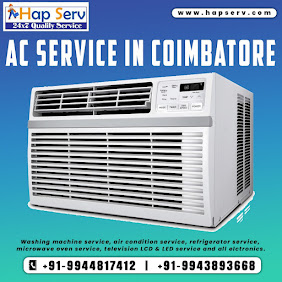How to Choose the Right Air Conditioner for Your Home
Understanding Cooling Capacity
The cooling capacity of an air conditioner holds paramount importance in determining its effectiveness in cooling your living space. Measured in British Thermal Units (BTUs), this metric indicates the amount of heat an air conditioner can remove from a room within an hour. Selecting an air conditioner with appropriate cooling capacity is crucial to ensure the desired cooling comfort without unnecessary energy wastage.
The Consequences of Insufficient Cooling Capacity
Opting for an air conditioner with insufficient cooling capacity can spell disaster for your comfort. A unit with too little cooling capacity will struggle to effectively cool the room, leaving you feeling hot and uncomfortable. It may even lead to increased humidity, poor air circulation, and hinder the air conditioner's ability to filter out impurities, impacting the overall indoor air quality. Therefore, it is vital to avoid choosing an undersized air conditioner that simply cannot keep up with the cooling demands of your space.
The Pitfalls of Excessive Cooling Capacity
On the contrary, selecting an air conditioner with excessive cooling capacity can also prove to be counterproductive. Oversized units tend to cycle on and off frequently, a phenomenon known as "short cycling." This not only wastes energy but also causes unnecessary wear and tear on the system, leading to potential malfunctions in the long run. Additionally, short cycling fails to effectively dehumidify the air, resulting in a damp and uncomfortable environment. Therefore, it is crucial to strike the right balance and choose an air conditioner with an appropriate cooling capacity for your specific needs.
Calculating the Ideal Cooling Capacity
Now that we understand the significance of selecting the right cooling capacity, let's delve into how you can calculate the ideal BTU requirement for your home. Properly assessing your space's cooling needs ensures that you make an informed decision when purchasing an air conditioner.
Step 1: Measure Your Room
Begin by measuring the length, width, and height of the room you intend to cool. Multiply these dimensions to determine the square footage.
Step 2: Account for Additional Factors
While the size of the room is a vital factor in determining cooling capacity, there are additional considerations to keep in mind. Take into account factors such as room orientation, insulation, the number of occupants, and any heat-generating appliances or electronics present. Adjust the cooling capacity accordingly to ensure optimal performance.
Step 3: Utilize a BTU Calculator
To simplify the process, utilize a BTU calculator available online or consult an HVAC professional. These tools take into account all the parameters discussed and provide an estimated BTU requirement for your specific situation. Remember, it is preferable to slightly oversize the air conditioner rather than undersize it.
SAMSUNG AC SERVICE IN COIMBATORE
Energy Efficiency Matters
Choosing an air conditioner with the right cooling capacity is important not only for your comfort but also for energy efficiency. Energy-efficient air conditioners help reduce your carbon footprint while keeping your electricity bills in check.
Look for SEER Ratings
Seasonal Energy Efficiency Ratio (SEER) ratings are a reliable indicator of an air conditioner's energy efficiency. The higher the SEER rating, the more efficient the unit is in cooling your space. When browsing through options, prioritize air conditioners with a higher SEER rating, as they not only save energy but also qualify for potential rebates and incentives.
Consider Inverter Technology
Another feature to keep in mind is inverter technology. Inverter air conditioners adjust their cooling capacity according to the room's requirements, operating at lower power consumption while maintaining optimal performance. This technology not only saves energy but also provides a consistent and comfortable cooling experience.
WHIRLPOOL AC SERVICE IN COIMBATORE
Additional Features and Considerations
While cooling capacity and energy efficiency are crucial factors, exploring additional features can further enhance your air conditioning experience. Consider the following:
Programmable Thermostats: These allow you to set desired temperatures and schedules, optimizing energy usage.
Smart thermostats take it a step further, utilizing Wi-Fi connectivity and advanced algorithms to learn your preferences and adjust accordingly.
Air Purification and Filtration: Look for air conditioners with built-in filters or additional air purification features to improve indoor air quality by trapping dust, allergens, and other pollutants.
Noise Levels: Pay attention to noise ratings, especially if you plan to install the air conditioner in a bedroom or study area where quiet operation is desired.
Conclusion
Choosing the right air conditioner for your home involves considering several essential factors such as cooling capacity, energy efficiency, and additional features. By understanding and calculating the ideal cooling capacity, you can ensure optimal cooling performance without wasting energy or overspending. Remember, aim for the sweet spot between an undersized and oversized unit to maintain comfort, efficiency, and cost-effectiveness. So, beat the heat and enjoy a blissfully cool home by making an informed decision when selecting your air conditioner. Stay cool!

.jpeg)

.jpeg)
Comments
Post a Comment